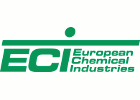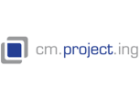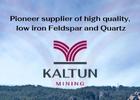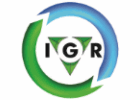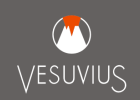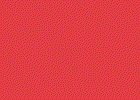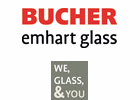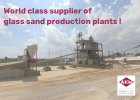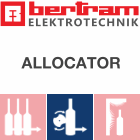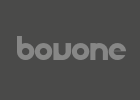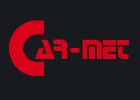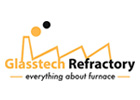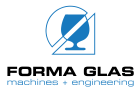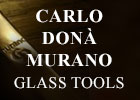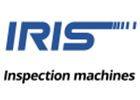Informações de contato
| Endereço | CAP CHEMICALS 16 Place du Général De Gaulle 59000 LILLE |
| Fax | 0033 972 389308 |
| Get in contact with CAP CHEMICALS | |
| INTERNET | www.capchemicals.com |
Pessoas para contactar
| Contato 1. | Antoine ASSAKER Director Phone: +33 61 0249595 Fax: +33 97 2389308 |
|
| Contato 2. | Mathias ASSAKER Business Development Manager Phone: +33 3 20 51 29 23 |
Produtos / Máquinas
An important consideration in glass product manufacturing ? We serve the glass industry on several aspects :
- Architectural
The architectural glass industry is an essential sector in modern building construction. It encompasses the manufacturing, processing, and installation of various types of glass for specific applications. These types of glass include flat glass, laminated glass, tempered glass, tinted glass, reflective glass, textured glass, and insulated glass.
Common applications of architectural glass include windows, doors, building facades, store displays, glass roofs, and glass railings. Advanced technologies such as waterjet cutting and thermal tempering are used to process and shape the glass.
- Automotive
The automotive glass industry is a key sector in vehicle manufacturing. It focuses on the production, processing, and installation of various types of glass used in automobiles, such as windshields, side windows, rear windows, mirrors, and panoramic roofs. These components are manufactured with specific features to meet the safety, visibility, and comfort requirements of drivers and passengers.
Common applications of automotive glass include protection against external elements, noise reduction, resistance to impacts and shattering, UV ray filtration, as well as aerodynamic enhancements.
- Glassware
The glassware industry focuses on the manufacturing of glass articles intended for various uses, primarily in the fields of tableware, decoration, and cosmetics. The product needs to be durable, functional, and aesthetically pleasing.
- Products
Cobalt(II) Acetylacetonate Corelink ® ™ CA-23
Cobalt(II) Acetylacetonate offer a compelling solution for enhancing adhesion between metal and rubber, while also mitigating oxidation-related deterioration. This is achieved through the vulcanization of a rubber composition containing both cobalt acetylacetonate and a vulcanizing agent in contact with the metal, resulting in an improved bonding process.
Cobalt(III) Acetylacetonate Corelink ® ™ CA-16
Cobalt(III) Acetylacetonate presents an effective approach to improve the bonding between metal and rubber and reduce deterioration caused by oxidation. This improvement is realized by combining cobalt acetylacetonate and a vulcanizing agent within a rubber mixture and applying vulcanization when it comes into contact with the metal, resulting in an enhanced adhesion process.
Chromium(III) Acetylacetonate
Chromium(III) Acetylacetonate is used in the glass industry for applications related to coloring, optical properties, catalysis, and research aimed at improving glass products. Its use must comply with current environmental and safety regulations.
Cobalt Oxide
Cobalt Oxide is used for its ability to color glass in blue, as well as for other applications related to the production of colored glass products, ceramics, optical glass, and reflective coatings. As with any industrial chemical, its use must adhere to the relevant environmental and safety regulations.
Soda Ash Dense
Soda Ash Dense is primarily used as a flux to lower the melting temperature, stabilize chemical compositions, adjust viscosity, and enhance glass quality. It plays a crucial role in the glass manufacturing process, contributing to energy savings and achieving high-quality end products.
Soda Ash Light
Soda Ash Light is a vital chemical compound in the glass industry, primarily used as a flux to lower the melting temperature, stabilize chemical compositions, adjust viscosity, and enhance glass quality. It plays a critical role in glass manufacturing by contributing to process efficiency and the quality of the final products.
Titanyl Acetylacetonate
Titanyl Acetylacetonate is used in the glass industry for coloring applications, primarily to impart a yellow or yellow-green hue to the glass. It is also employed in the production of dichroic glass, which changes color depending on the viewing angle, making it suitable for artistic, decorative, and optical applications. In research and development, this compound is utilized to study the properties of titanium in glass and to develop new glass formulations.
Iron(III) Acetylacetonate
Iron(III) Acetylacetonate is used to color glass in shades of green or blue-green, depending on the concentration and application method. It is used in the production of artistic and decorative glass, as well as in research and development applications to study the chemical and optical properties of iron in glass.
Vanadyl Acetylacetonate
Vanadyl Acetylacetonate can be used for coloring glass in blue or green. It can also be employed in the production of optical glass to adjust optical properties.
Mono Butyl Tintrichloryde
It can serve as an agent to remove air bubbles in molten glass, as a catalyst in certain chemical reactions, and as a stabilizer to alter glass properties. Corelink it’s our own brand. This initiative reflects our commitment to innovation and quality in the glass industry.
We also create tailormade products to precisely meet your specific needs.
História de empresa
With over 20 years of expertise, CAP CHEMICALS provides leading chemical product solutions on a global scale. Our expertise goes beyond mere trade to become a comprehensive partnership, encompassing pre-purchase advisory, strategic product acquisition, real-time logistics management, and close, responsive customer service.
We guarantee high-quality products, strict adherence to deadlines, competitive pricing, optimized logistics, and ongoing support. Our unmatched expertise and know-how position us as a major international player. Our technical solutions meet the demands of industries such as glass, rubber, adhesive/glue, ink, PVC...
The growth of our company stems from our investment in partnerships, product quality, and technological exploration. At CAP CHEMICALS, we actively contribute to the evolution of our sector towards the use of high-performance and cleaner products. Want to learn more ? Visit our website: capchemicals.com

